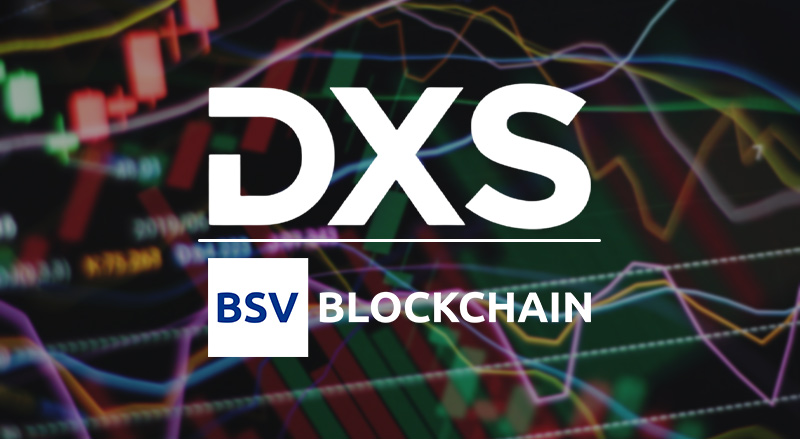- CFD trading platform DXS allows trading of stocks, cryptocurrencies, commodities, forex, and stock indices on margin using Bitcoin.
- DXS offers instant settlement on the Bitcoin blockchain, eliminating the need for T+2 payment on legacy platforms.
- DXS focuses on underserved markets, providing low fees and trade sizes previously unavailable.
- DXS prioritises auditability through its liquidity engine, where users can provide liquidity and receive compensation for trading losses.
- All trades and liquidity provisions on DXS are accessible through its web app and mobile experience and are publicly auditable on the Bitcoin blockchain.
- DXS has introduced BSV-backed stablecoins called liquidity-backed stablecoins (LBS) on the BSV network.
- LBS aims to provide settlement flexibility and the ability to profit in different fiat currencies.
- Stablecoins attempt to maintain a value peg to a traditional currency, providing stability in the volatile cryptocurrency market.
- The benefits of stablecoins include stability, reduced transaction costs, decentralisation, access to financial services, and high liquidity in exchanges.
CFD trading platform DXS allows anyone with Bitcoin to trade stocks, cryptocurrencies, commodities, forex, and stock indices on margin, with trade sizes as small as $0.01. Traders who need quick entry and exit can benefit from an instant settlement on the Bitcoin blockchain, eliminating the need to wait for T+2 payment on legacy platforms.
DXS’s speed, efficiency, and flexibility for traders in emerging markets provide a substantial UX improvement and access to previously unattainable investments due to trade size restrictions and high fees. DXS has prioritised underserved markets, offering low fees and trade sizes that were once impossible.
DXS also prioritises auditability through its revolutionary liquidity engine. The engine pools funds from liquidity providers, who have a stake in the ‘house’ in return. DXS users can provide liquidity to the pool, receiving a portion of trading losses as compensation.
This is a significant revenue source for platforms like DXS. All trades and liquidity provisions are easily accessible through DXS’s web app and mobile experience, and are publicly auditable on the Bitcoin blockchain, providing transparency into the process.
BSV-backed stablecoins
As part of its offering, DXS has introduced BSV-backed stablecoins as tokens on the BSV network. These are called liquidity-backed stablecoins, or LBS for short, and DXS aims to have a separate LBS for each of the fiat currencies users request.
“Our motivation to launch LBS on BSV is to accommodate a DXS trading experience with LBS-backed settlement. We want to give our traders the flexibility to choose which currency to profit-seek in,” the group said.
“We believe launching LBS on BSV represents a huge competitive advantage for DXS as a business. Additionally, we believe that access to reputable LBS tokens on BSV will help grow the wider BSV ecosystem.”
What is a stablecoin?
A stablecoin attempts to maintain a value peg to a traditional currency – like the US dollar. A ‘value peg’ simply means that a one-dollar stablecoin (for example) will represent a value equal to one dollar. Consequently, a dollar stablecoin should trade for $1 on the open market.
There are two (main) types of stablecoin:
- Fiat-backed – Every stablecoin token issued represents an equivalent amount of fiat currency in a bank account.
- Crypto-backed – Every stablecoin token issued represents an equivalent amount (in terms of value) of crypto. DXS’s stablecoins will be backed by BSV (crypto-backed).
The benefits of stablecoins
Stablecoins are cryptocurrencies that are designed to maintain a stable value relative to a particular asset or basket of assets, such as the US dollar, gold, or other cryptocurrencies. Some of the benefits of stablecoins include:
- As the name suggests, stablecoins provide stability in an otherwise volatile cryptocurrency market. They offer a more predictable value compared to other cryptocurrencies, making them an attractive option for those who want to avoid the fluctuations and risks associated with other cryptocurrencies.
- Stablecoins can help reduce transaction costs associated with traditional banking systems by providing faster and cheaper cross-border transactions.
- Unlike traditional currencies, stablecoins are decentralised, which means any central authority does not control them. This can make them a more secure and transparent option for users.
- Stablecoins can provide access to financial services for people who don’t have access to traditional banking systems or who live in areas with unstable currencies.
- Stablecoins are often used as a trading pair in cryptocurrency exchanges, which means they have high liquidity, making it easy to buy and sell them.
